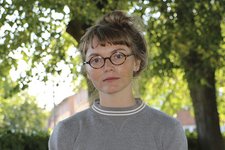Policies and Practices
"Policies and practices" (WP3) explores the dynamic relationship between the 're-missioning' of universities and their funding, governance and management.
Finance, governance (decision-making for control, accountability and regulation) and management comprise a suite of control technologies which make possible and facilitate the trends and developments to be explicated in Trends and developments (WP2). They are 'tools' to which governments and university managers increasingly turn to implement policy and strategy. As WP1 will make explicit, such technologies are far from neutral and objective - they shape and determine the course of organisations, mediating power relationships within them. For instance, the introduction of commercial accounting approaches in a university may lend power to finance professionals at the expense of academic autonomy and also redefine the institution as one with a profit-seeking motive. These control regimes also shape the working lives of academics, regulating and disciplining behaviour and creating new modes of resistance. WP3 seeks to address what control technologies have been embedded and what effects they have on organisational forms and ethos, and on academic identities. It will also explore the routes to adoption in differing regions. Most innovatively, this working group will seek to map possible alternative funding, governance and management regimes of control which might have wholly different, and perhaps more beneficial, impact on the transformation of universities. The projects in WP3 will take the form of a set of extended case studies.
Governance through Autonomy – A context-rich comparative study

Name: Vanja Ivošević
Summary: The project examines the meanings and significance of ‘autonomy’ as a central concept in new forms of university governance. The aim is to grasp how it acts simultaneously in three ways: as an instrument of state regulation; as an incentive for making universities into coherent and strategic organisations; and as mechanism for interpellating academics as appropriately ‘self-managing’ subjects.
Alternative Forms of University Ownership, Finance and Organisation

Name: Catherine Butcher
Summary: The research aims to explore how universities can be made more accessible through alternative forms of governance models such as Co-operatives. From personal experience it is anticipated that a co-operative university will seek to provide equal opportunity by placing people and their needs over profits; ensure democratic control; and build socially just local communities through university reform while at the same time provide excellent quality education at affordable prices.
Management and gender

Name: Katja Jonsas
Summary: The aim is to find out how local managerial practices, local understandings of femininities and masculinities, and local definitions of academic identities facilitate the reconstruction of gender uniformity in academia? Furthermore, how the local practices intersect with the global developments in higher education? This research will contribute to discussions about gender diversity in academia, and the aim is to create a theoretical framework that can be applied when trying to figure out other diversity issues in academia.
Impact of governance changes on the educational categories and internal life of universities

Name: Benedikte Custers
Summary: The project examines the reconfiguration of educational categories resulting from the changes to governance in higher education. As the Bologna rationales of reform have been implemented beyond the European region, carrying on their shoulders the governance reforms, attention must be paid to their impacts on the reconfiguration of educational categories such as ‘professor’, ‘student’, ‘teaching’, ‘learning’, class and campus – the traditional time/space of education.
Becoming a valuable academic in the global knowledge economy: Gender and class perspectives on the “ideal academic”

Name: Rebecca Lund
Summary: My aim is twofold. On the one hand to explore the possibilities of using and developing a reflexive Institutional Ethnography. Secondly to unpack the social relations of gender and quality in changing academia. More particularly I am interested in the social relations of class and gender and how these are shaped by notions of quality and epistemic status in academia, but more particularly in discourses of affect within a changing academic culture and academic knowledge production.